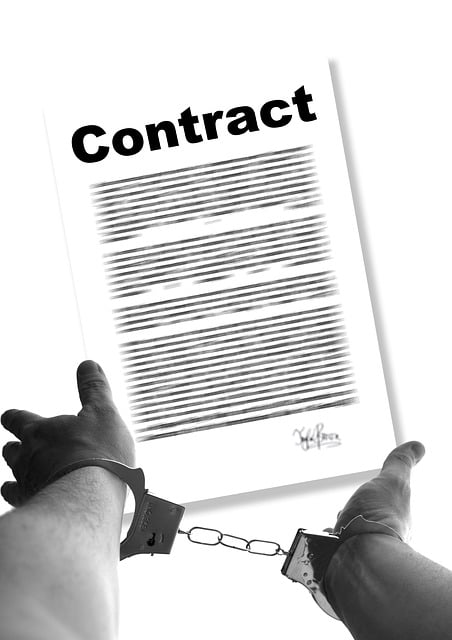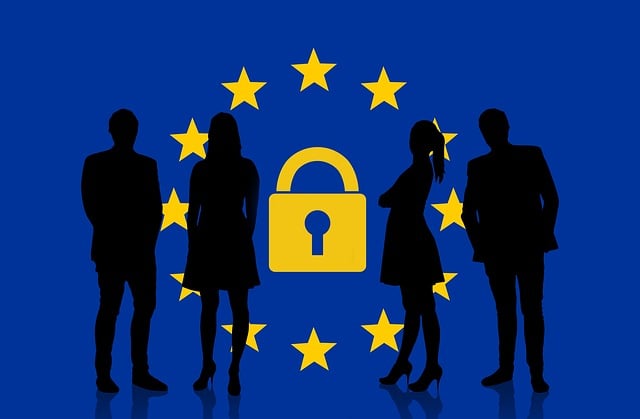E-commerce faces complex regulations and general liability risks. Understanding data privacy, consumer protection, and international laws is crucial. General Liability insurance protects against product issues, injuries, and legal claims. It covers defense fees, medical expenses, and damages for online retailers. Effective customer complaint management enhances brand trust. Strategic risk mitigation, including vendor screening and quality control, is vital. Clear policies, transparent communication, and accurate listings reduce general liability risks.
In today’s digital age, e-commerce has become a bustling tapestry of online sales, presenting both opportunities and unique legal challenges. Understanding general liability is paramount for businesses navigating this landscape. This comprehensive guide delves into the intricacies of general liability in e-commerce, exploring key aspects like defining liability, managing risks, insurance coverage options, product safety obligations, customer complaint handling, strategic risk management, notable case studies, and best practices for mitigating potential liabilities.
Understanding E-commerce's Legal Landscape

The legal landscape surrounding e-commerce is vast and complex, with various regulations and laws impacting online businesses. As e-commerce continues to grow exponentially, understanding general liability and its implications becomes increasingly crucial for entrepreneurs and business owners. This digital realm presents unique challenges, from data privacy concerns to consumer protection issues, all of which can trigger legal responsibilities.
Navigating this landscape involves recognizing the diverse nature of online transactions, including product sales, service provision, and customer interactions. E-commerce platforms must comply with local, state, and international laws, ensuring fair business practices and consumer rights. General liability insurance plays a pivotal role here, offering protection against potential claims arising from product defects, personal injuries, or professional negligence, thereby enabling businesses to operate with confidence in this ever-evolving legal environment.
Defining General Liability: Basics Explained

General Liability, at its core, refers to a type of insurance that protects businesses against claims of negligence or harm caused to third parties. This includes situations where a customer slips and falls on a store’s property, or when a product sold online is found to be defective and causes injury. It essentially covers the costs associated with legal defense, medical expenses, and any damages awarded by a court.
For e-commerce businesses, General Liability insurance is crucial as it provides a safety net against potential risks inherent in selling products online. This includes not only physical injuries but also damage to reputation due to product liability claims or even slander and false advertising. By understanding and managing these risks, businesses can ensure smooth operations and maintain customer trust.
Risks Associated with Online Sales

Online sales have revolutionized the way businesses operate, but they also come with unique risks that can impact a company’s general liability. One significant concern is the potential for product liability claims, as e-commerce platforms often deal with various third-party vendors and suppliers. When a customer purchases a product through an online store, they expect it to match the descriptions and images provided, and any deviation could lead to dissatisfaction or even harm, resulting in legal repercussions for the seller.
Additionally, the digital nature of e-commerce introduces new challenges related to data security and privacy breaches. As businesses collect and store vast amounts of customer information, a data leak or unauthorized access can have severe consequences, including financial losses, damage to reputational value, and potential legal obligations under data protection regulations. These risks underscore the importance of robust general liability insurance for e-commerce enterprises to safeguard against unforeseen legal issues arising from online sales activities.
Business Insurance: Coverage Options

Business Insurance plays a pivotal role in mitigating risks associated with e-commerce operations, with General Liability insurance being a cornerstone. This type of insurance protects businesses from financial loss due to claims of bodily injury or property damage arising from their activities. It covers legal fees and settlement costs, ensuring the business can navigate potential liabilities without severe financial strain.
Coverage options under General Liability insurance are diverse. They include product liability coverage, which shields against claims related to defective products sold online; premises liability coverage, addressing injuries sustained on a business’s physical or virtual properties; and professional liability insurance, guarding against errors or omissions in business operations, such as inaccurate order fulfillment or data breaches. Tailor-made policies cater to the unique needs of e-commerce businesses, ensuring comprehensive protection across various risk scenarios.
Legal Obligations for Product Safety

E-commerce businesses have a general liability to ensure the safety of products they sell online. This includes adhering to relevant product safety standards and regulations, such as those set by consumer protection agencies or industry-specific bodies. Sellers must implement robust quality control measures throughout their supply chain to identify and mitigate potential risks associated with their goods.
Failure to meet these legal obligations can result in severe consequences, including product recalls, damage to reputation, and significant financial penalties. Moreover, e-commerce platforms should maintain detailed records of product sourcing, manufacturing processes, and testing results to demonstrate due diligence in ensuring product safety and addressing any potential liabilities effectively.
Handling Customer Complaints and Returns

E-commerce businesses must be prepared to handle customer complaints and returns as part of their general liability management. Efficiently addressing these issues is crucial for maintaining a positive brand image and fostering customer trust. When a customer receives a damaged or defective product, prompt action is essential. Offering easy return processes, providing clear communication, and ensuring smooth exchanges or refunds can significantly impact customer satisfaction.
Businesses should establish clear policies and procedures to handle returns and complaints effectively. This includes providing detailed information on the website regarding return eligibility, timelines, and methods. Proactive communication through email or live chat support during the resolution process demonstrates responsiveness and care for customer experiences. Effective handling of these situations can turn dissatisfied clients into loyal advocates, showcasing the business’s commitment to general liability and customer satisfaction.
Strategic Risk Management in E-commerce

Strategic risk management is an essential component of running a successful e-commerce business. With the rise of online transactions, businesses face new challenges in terms of general liability and potential legal repercussions. A robust risk management strategy involves identifying and mitigating risks at every touchpoint of the customer journey, from product sourcing to delivery and post-sales support.
By implementing comprehensive insurance coverage tailored to e-commerce operations, businesses can protect themselves against financial loss and reputational damage. This includes general liability insurance that covers claims of bodily injury or property damage caused by products sold online. Proactive risk assessment and strategic planning enable e-commerce businesses to foster trust with customers, ensuring a positive shopping experience and fostering long-term brand loyalty.
Case Studies: Notable Liability Cases

In the realm of e-commerce, understanding general liability is paramount. Case studies of notable liability cases highlight the diverse range of issues that can arise for online businesses. For instance, consider a high-profile lawsuit where a popular electronics retailer faced significant fines and damage to its reputation due to selling counterfeit products. This incident underscores the importance of thorough vendor screening and product authenticity verification in e-commerce operations.
Another compelling case involves a fashion boutique’s failure to disclose known product defects, leading to multiple customer injuries. The subsequent legal battle resulted in substantial compensation for victims, emphasizing the legal obligation of online retailers to provide accurate product information and ensure safety standards. These real-world examples serve as a stark reminder that general liability is not merely a theoretical concept but a critical aspect of e-commerce success, necessitating proactive measures to mitigate risks.
Best Practices for Mitigating Liability

To mitigate general liability in e-commerce, businesses should implement several best practices. First, establishing clear return and refund policies is essential to manage customer expectations and reduce disputes. Transparent communication about product conditions, shipping procedures, and return processes can minimize the risk of liability claims related to customer dissatisfaction.
Additionally, regularly reviewing and updating product listings to ensure accuracy is vital. Accurate and detailed descriptions, including material compositions, dimensions, and potential allergens, help prevent misleading customers and associated legal issues. Implementing robust quality control measures throughout the supply chain further reduces the likelihood of selling defective products, which could lead to product liability claims.
